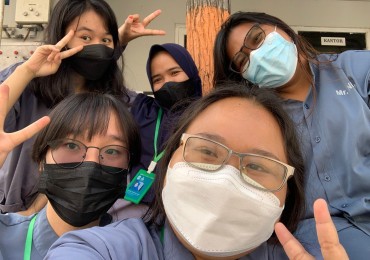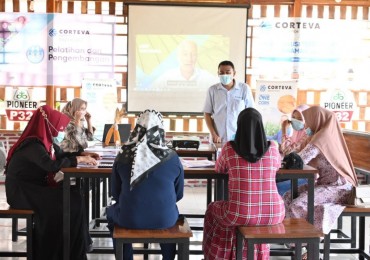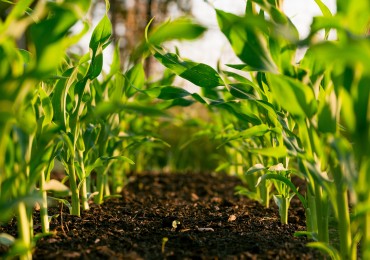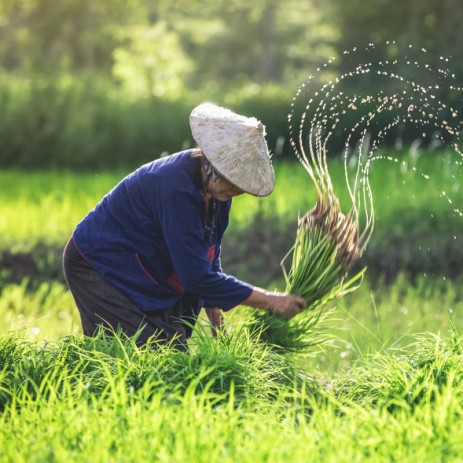news
The Future of Coffee: Innovation, Challenges, and Collaboration for Younger Generation
01 Feb 2024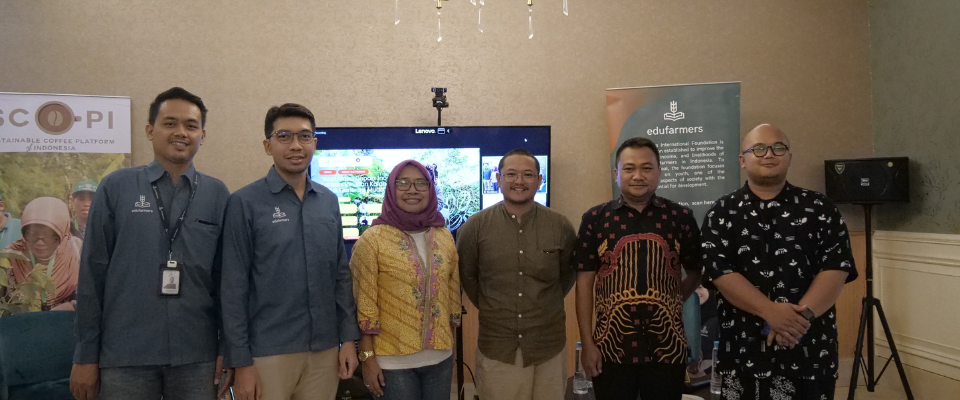
Jakarta, 26 January 2024 – The agricultural landscape in Indonesia, particularly within the coffee commodity sector, is currently grappling with significant challenges. One pressing issue is the declining number of young workers, leading to an aging farmer population. This phenomenon is not unique to Indonesia but is a global concern. According to data from the Agricultural Census, the last two decades have witnessed a shift towards older farmers dominating the agricultural workforce, accompanied by a decline in the proportion of young workers. In 2018, the Central Statistics Agency (BPS) reported a continuous decrease in the workforce within the agriculture, forestry, and fisheries sectors, dropping from 33% to 29% in the past five years. This trend poses a potential threat to national food commodity production.
In addition to the aging farmer phenomenon, the educational background of workers in the agricultural sector presents another challenge. A significant portion of workers only hold an elementary school (SD) education, hindering the effective transfer of knowledge and technology. This limitation slows down the adoption process of the latest agricultural technologies, as older farmers tend to stick to traditional methods they deem appropriate for current conditions.
Furthermore, the perception of work in the agricultural sector as difficult, less interesting, time-consuming, less profitable, and economically risky contributes to the decreasing interest of the younger generation. Urbanization is on the rise, with BPS projecting a 66.6% urbanization rate, primarily driven by young workers seeking more promising and modern job opportunities in urban areas.
Despite these challenges, the demand for coffee, a vital agricultural commodity, is experiencing growth. The Sustainable Coffee Platform of Indonesia (SCOPI), in collaboration with the Edu Farmers International Foundation, endeavors to address these challenges. These organizations, acting as non-governmental organizations (NGOs), are committed to attracting youth interest in the agricultural sector, specifically in sustainable coffee.
A recent initiative, "The Future of Coffee: Innovation, Challenges, and Collaboration for the Young Generation," organized by SCOPI and Edufarmers, aimed to foster dialogue and collaboration among various stakeholders. The event featured representatives from the Ministry of Agriculture, private sector entities such as CV. Frinsa Agrowisata, and downstream sector players like Kopi TUKU and BERAGAM.
During the event, discussions centered on the crucial role of young farmers in the regeneration of the coffee industry. Andanu Prasetyo, CEO & Founder of MAKA (Makna Angan Karya Andanu), emphasized the shared responsibility of the industry to humanize farmers and treat them fairly. Tri Kusnari from the Ministry of Agriculture highlighted the importance of regeneration, acknowledging the challenges related to land ownership.
Various efforts, including the Edu Farmers International Foundation's Farming for the Country program, were discussed as part of the broader strategy to regenerate farmers. The program involves students contributing by transferring knowledge to farmers and youth in targeted areas. Collaboration between stakeholders, as exemplified by CV. Frinsa Agrowisata, was emphasized not only in providing free equipment but also in offering assistance throughout the entire process, from inception to market creation.
The event concluded with a Q&A session and knowledge-sharing sessions from participants about agricultural conditions in different areas. The organizers expressed gratitude to all participants and envisioned future inspiring events to further address the challenges faced by the Indonesian coffee agriculture sector.
 Back To List
Back To List

